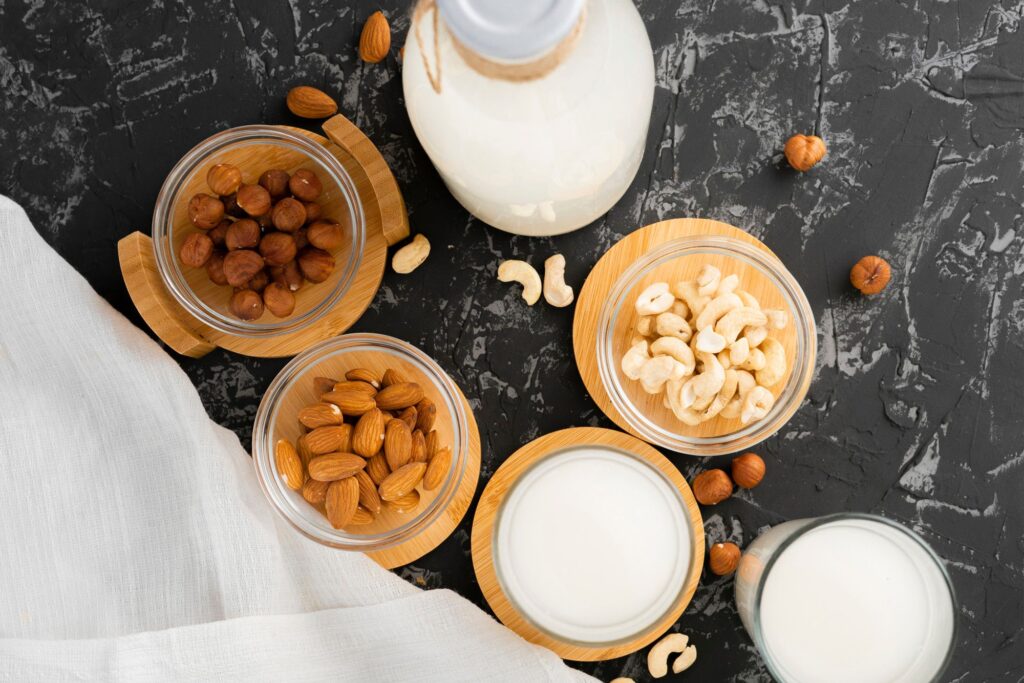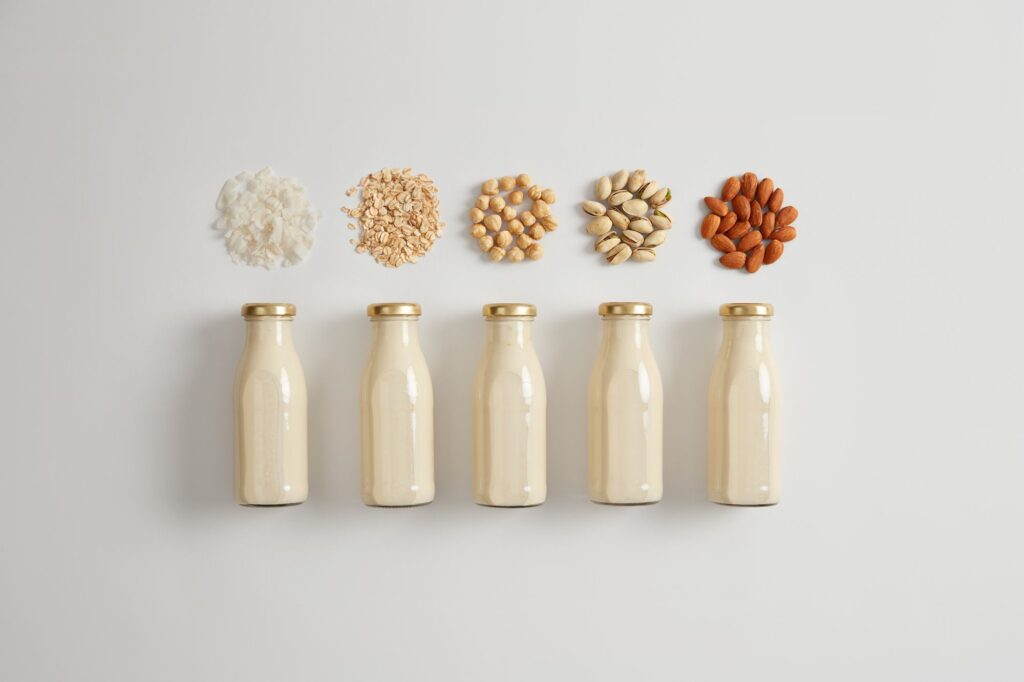The reasons for their consumption are varied; from ethical issues such as animal abuse, to contribute to the reduction of greenhouse gas emissions, or those who prefer them for health reasons such as food allergies or lactose intolerance.
The truth is that we find more and more variety in the market, either in their source of origin (soy, oats, almonds), as in the ingredients and / or nutrients used to obtain a better product.
How to know which is the best option when buying, how to compare price vs. quality, which is the best option from a nutritional point of view? Here are some tips:

- They are vegan products and therefore lactose-free (lactose is a carbohydrate present only in animal milk).
- Enriched: Some brands enrich their products with vitamins and minerals naturally found in cow’s milk, such as calcium, vitamin D and B complex vitamins.
- Depending on the origin of the vegetable drink so will be its nutritional composition. For example, cereal-based beverages such as oat or rice contain mostly carbohydrates, soy beverages are high in protein and almond beverages are high in lipids (fats).
- The basic vegetable drink is the raw material (oats, soybeans, peanuts) + water. The more characteristics or ingredients the product has, whether barista type, flavored and/or enriched with micronutrients, the higher the price will be. It will also influence the percentage of raw material it contains and the origin of these; from where and under what environment the harvest was carried out.
- Vegetable drinks are not a substitute for cow’s milk. It is just another food option. However, you can find options that are similar to cow’s milk in terms of nutrients, in case you want to “replace” one for the other.
Plant-based beverages according to their source of origin:
| Cereals and pseudo-cereals | Legumes | Fruits-nuts | Seeds |
| high in carbohydrates (starch) | high in protein | high in lipids (fats) | high in lipids (fats) |
| E.g: Rice, oat, quinoa beverages | E.g: Soybean, peanut | E.g: Almond, coconut, hazelnut | E.g: Sesame, hemp, sunflower |
To know which is the best option, it is important to know what you want to use it for. If milk has never been your main source of calcium and protein, and you decide to buy vegetable drinks, then opt for the one you like the most, either to mix it with your coffee or to consume it whenever you want. If you are going to drink it daily and you would like it to provide you with better nutritional characteristics, then the recommendation would be to opt for those that do not contain added sugar or as little as possible (maximum 5 grams of added sugar per 100 ml liquid, which is similar to the amount of lactose contained in cow’s milk). And if you have stopped drinking cow’s milk and have decided to change it for a vegetable drink, the best option will be the one that most resembles the nutritional characteristics of a cow’s milk, and in this case the best option would be soy-based drinks, because of their high protein content (3 g of protein in 100 ml) which is similar to cow’s milk, both in quantity and in nutritional quality of the proteins. To include micronutrients found in milk, such as calcium, vitamin D and B-complex vitamins, several brands enrich vegetable drinks with these nutrients. You can check the labeling and see that the drink is fortified, usually incorporating the same amount of micronutrients contained in cow’s milk, for example, 120 mg of calcium in 100 ml of milk.

You can also check the ingredients and see the percentage of raw material contained in the vegetable drink. A contribution of at least 9-10% of soy or oats in 100 ml of liquid ensures a good nutritional content and it is not just water that you are paying for. Drinks based on nuts or seeds usually have 2-3% of raw material per 100 ml of liquid so they should be seen as an optional food, but without a significant nutritional contribution.

You can leave your comment below, questions or if you want to know more about the topic, such as barista type drinks, flavored or mixed drinks (almonds + oatmeal).



Awesome post!
Thanks!